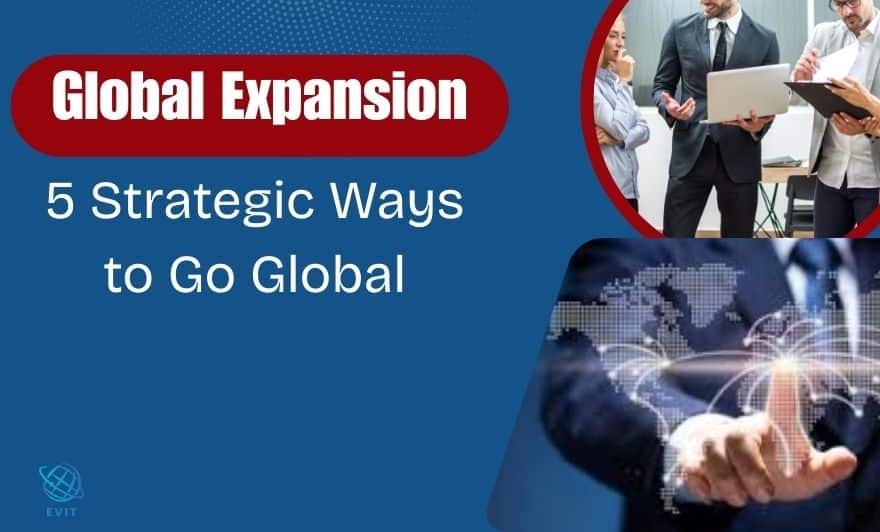In an era of shifting trade dynamics and rising tariffs—especially those recently imposed by the US— businesses are facing both a challenge and an opportunity. The global landscape is changing fast, and for many local companies, now is the time to look beyond the domestic market and go global.
In this article, we’ll explore 5 core market entry strategies—along with their pros, cons, and real-world considerations—to help you determine the best path forward for your business.
1. Build an Internal Sales Team for Long-Term Growth
Ideal for: Companies with long-term vision and internal capabilities
Creating a dedicated international sales team is one of the most sustainable ways to scale. You retain full control, build in-house knowledge, and directly manage global relationships.
✅ Pros
- Retains knowledge and insights
- Full control over sales process and team
- Sustainable, scalable model
❌ Cons
- Costly hiring mistakes
- Difficult to find top-tier international salespeople
- Complex onboarding without expert support
🔍 Tip: You can combine this with sales consulting for IT companies to train your team efficiently.
2. Use Marketing Agencies or Lead Gen Services (With Caution)
Ideal for: Companies looking for quick wins
Many businesses try to accelerate growth through agencies. They promise leads and visibility, but results can vary significantly—especially in unfamiliar markets.
✅ Pros
- Fast setup and launch
- Scalable with budget
- No need to hire internally
❌ Cons
- Limited transparency on results
- No knowledge transfer
- Often ineffective in regions like Europe or Southeast Asia
💸 Caution: IT firms outsourcing lead gen may report poor ROI without local adaptation.
3. Sales Outsourcing for Rapid Entry into Local Markets
Outsourcing to Asia, especially Japan or the Philippines, offers access to experienced teams that know the local terrain. It’s a great way to enter a market fast—without upfront hiring.
✅ Pros
- Quick launch with local experts
- Market knowledge and existing networks
- No long-term employment obligations
❌ Cons
- High monthly costs
- No internal learning
- Limited alignment with your brand message
4. Collaborate with Sales Consulting Companies
Ideal for: Tech companies scaling globally but needing guidance
Working with experienced consultants can fast-track your understanding of new regions. Unlike outsourcing, you keep the know-how and apply it across all markets.
✅ Pros
- Strategic insights and market intelligence
- Knowledge becomes your internal asset
- Best long-term ROI for scaling teams
❌ Cons
- Requires internal implementation resources
- Some of companies charge premium fees for expert consultants
- Dependent on consultant’s quality
📈 Best for companies seeking sustainable global expansion strategies with internal team empowerment.
5. Mergers & Acquisitions (M&A)
Ideal for: Enterprises seeking instant market access
Buying or merging with a local company grants immediate presence, resources, and market share. It’s a bold move—but it comes with heavy due diligence and integration challenges.
✅ Pros
- Immediate access to clients and staff
- Potential capital boost
- Accelerated market penetration
❌ Cons
- Risk of culture clash
- High legal and financial costs
- Time-intensive negotiations
🏢 Use M&A only when your company is structurally and financially ready.
✨ Watch full video: here
🔑 Key takeaway: Going global isn’t one-size-fits-all. From outsourcing to Vietnam to leveraging consulting for IT service providers, choose the path that fits your growth stage, budget, and team capacity.
At EVIT Organization, we believe that successful global expansion starts with the right knowledge, strategy, and community. If you found these insights helpful, feel free to follow us for more practical guidance, case studies, and shared experiences from Vietnamese companies going global.
We’re here to share what works—and to learn together.

